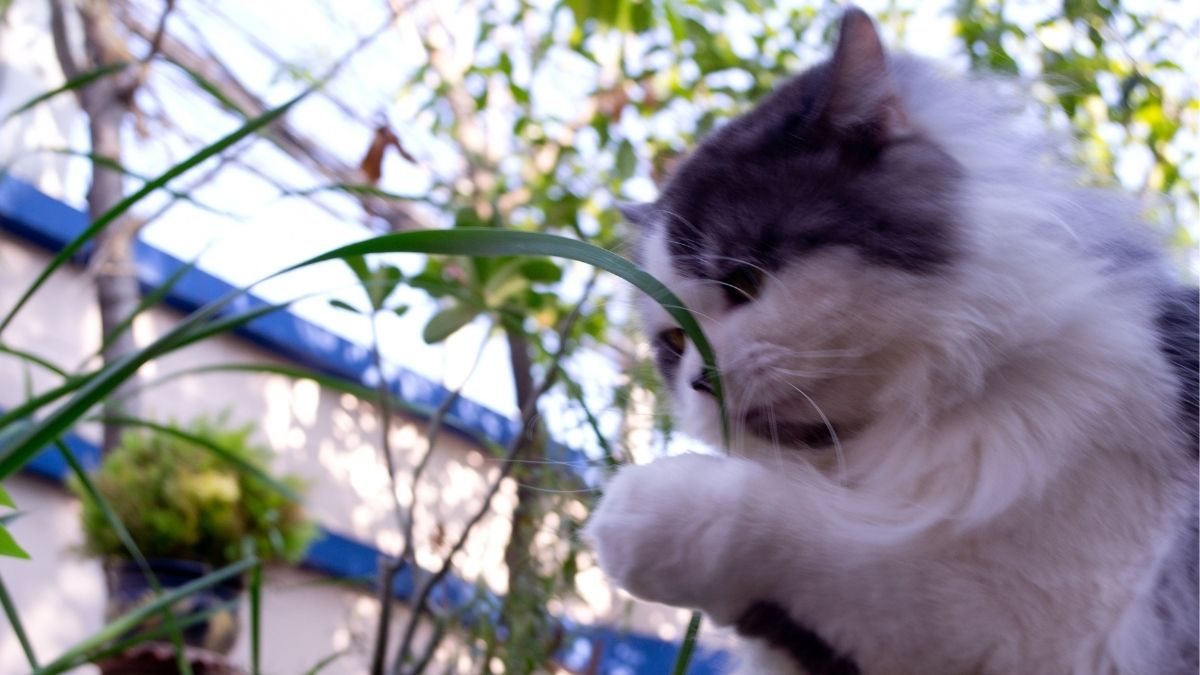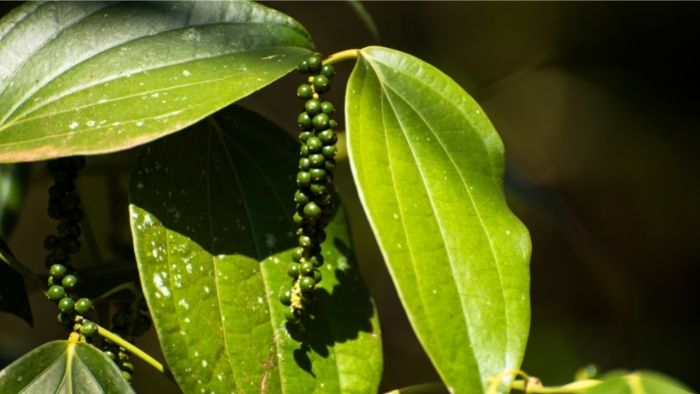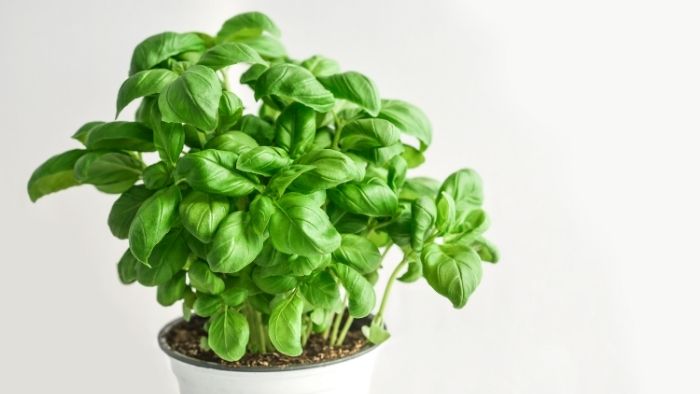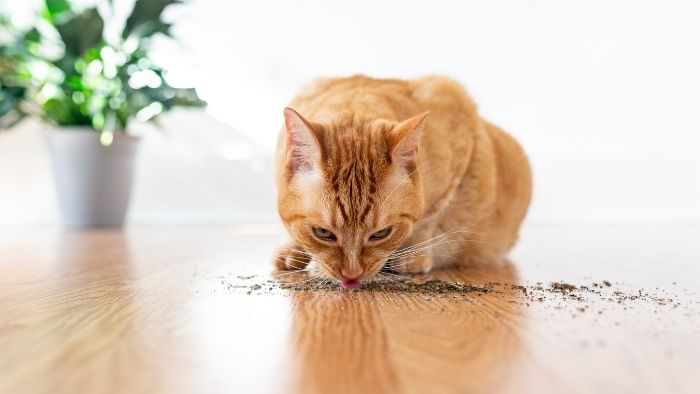Before exposing them to any, you should ask yourself if cats can eat black pepper. Many spices can harm your kitty – is black pepper one of them?
Black pepper helps food taste better. It’s a common cooking ingredient, and some people even add it to their food before eating it. If you do this, you should know if black pepper is safe for cats. Your kitty might want a bite or snatch leftover if you leave your plate on the table.
IMPORTANT: At stuffaboutcats.com, we regularly consult with licensed veterinarians and other industry experts. However, the information found on stuffaboutcats.com should not be viewed as veterinary advice. We do our best to help you better understand your cats, but the information on this blog is not a substitute for veterinary guidance.
In this article, I share whether black pepper is safe for cats and list some other herbs that your kitty might enjoy!
Can Cats Eat Black Pepper?
Cats who consume food with small amounts of black pepper should be just fine. If they eat more, you should be concerned and look out for any signs or symptoms that they’re having a reaction to the black pepper.
You should monitor your cat for approximately 24 hours after eating black pepper to ensure they don’t show any signs of poisoning like abdominal discomfort, vomiting, or diarrhea. Make sure to give them a lot of water because they may dehydrate.
Larger amounts of black pepper can be harmful to your cat’s health. It may not be very spicy if you use a small amount on your food, but imagine the taste if you eat a whole spoonful at once.
Black pepper in large amounts contains essential oils and terpenes that can damage your pet’s kidneys. It can upset their stomachs and make them vomit or cause diarrhea.
Gastrointestinal symptoms should go away by themselves after 48 hours. If the symptoms haven’t cleared, you should contact a veterinarian.
Do Cats Like Black Pepper?
Black pepper has a strong odor that makes most people sneeze, and cats have a heightened sense of smell. Your cat will most likely stay as far away from black pepper as possible. The scent might put them off, and the feeling they experience when breathing it in might irritate them.
Inhaling black pepper can cause a burning, irritating, or tickling sensation. Some people use black pepper in places they don’t want cats to roam, like gardens and potted plants.
Your cat will not return to a place where they once inhaled black pepper, which is why it is an effective repellent.
The Benefits Of Black Pepper For Cats
Black pepper has no nutritional value for cats, and putting some on your cat’s food may make it taste or smell bad. Black pepper will repel your cat, and if they smelled it once, they will never go near it again. If you put it on your cat’s food, it’s almost certain that they won’t want to eat from the same bowl again!
Your cat won’t receive any health benefits when eating black pepper. If you spray them with it in the form of a repellent, they can also go blind.
Other Herbs And Spices That Are Better For Cats
There are many herbs and spices that are good for cats. Here’s a list of some you can choose:
Catnip
Catnip is a cat’s best friend! It instantly calms and relaxes them. It also has a stimulant that boosts their mood, soothes their itches, and can relieve their anxiety and depression.
Dill
Dill is great for a bloated or gassy cat. It can calm their stomach and relieve any trapped gas. Dill can also soothe their stomach if they experience any pain.
Thyme
This is a good source of dietary fiber and can provide your cat with antioxidants. Your pet’s skin will significantly benefit from these antioxidants that help fight infections with their antibacterial and antifungal properties.
Mint
This plant in spice form can keep pests and bugs like ticks and fleas away while soothing your cat’s skin. When given correctly, it can relax your cat almost as much as catnip.
Basil
Basil leaves and spices are anti-inflammatory and antibacterial. It can relieve your cat’s anxiety while being good for their health and skin.
Parsley
Parsley is an immune system and health booster that can improve your cat’s eyesight. It contains many vitamins and minerals like vitamins A, K, and C.
Rosemary
Rosemary is another excellent antioxidant, an antibacterial and antifungal plant that improves digestion, skin and coat health, and eyesight. It will leave your cat’s coat shiny and their skin without infections.
Can Cats Eat Peppers?
Cats can’t eat spicy or hot peppers like ghost or jalapeño peppers. It will burn their tongues and throats and also cause gastrointestinal upset, including vomiting, abdominal pain, and diarrhea or constipation.
They can consume cooked bell peppers in small, moderate amounts since these are healthy and safe. Peppers should not replace any of their meals, and you should only serve them as a treat.
Wrapping Up
It’s best to not give your cat any black pepper. You should also be careful when using it as a repellent. Black pepper can harm your kitty when they ingest it or even just breathe it in.
There are many yummy spices that cats can enjoy besides black pepper. If you’d like to add some extra flavor to their food, try one of these alternatives instead.
I hope you enjoyed this article and that you’ll try some of the herbs mentioned in your cat’s next meal. If you have any questions, ask them in the comments!
FAQs
Can cats eat salt & black pepper?
No.
Cats shouldn't eat salt or black pepper. These can make them sick and lead to fatal poisoning if consumed in large amounts.
Is black pepper safe for pets?
Small amounts of black pepper are safe for some pets, like dogs, but giving it in excess can still make them sick. It's best to not give your pets any black pepper.
Will black pepper stop cats?
Black pepper can be used as a cat repellent, but you need to ensure that you use it safely. If not, you can severely harm your cat.
Are peppers harmful to cats?
Hot peppers are mostly harmful to pets, but they can safely consume many sweet varieties.



